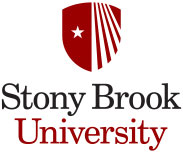
| Week of | Topics | Problems due | Due date |
|---|---|---|---|
| Jan 27 | First-order differential equations: 10.1: Direction fields 10.2: Separation of variables 10.3: linear equations, integrating factors |
10.1A: 2, 3, 7, 9, 11, 12, 19, 20 10.2: 3, 9, 18, 19, 21 10.3: 3, 4, 6 ,7, 11, 19 |
Feb 5 |
| Feb 3 | Vector spaces and linearity: 3.1: Linear Maps/Euclidean spaces 3.2: Vector Spaces 3.3: Linear Maps/Vector spaces |
the exercise was given in the class, 3.1: 4, 6, 8, 13, 16 |
Feb 12 |
| Feb 10 | 3.4 Image and Null Space 3.5 Coordinates and Dimension 3.6 Eigenvalues and Eigenvectors |
3.2 : 6, 7, 11(a), 16, 20, 23 3.3: 13, 17(a) 3.4: 16, 18. |
Feb 19 |
| Feb 17 | 3.6 Eigenvalues and Eigenvectors 3.7 Inner Products |
3.5AB : 4, 8, 15, 24 3.5C: 4 3.6A: 4, 6 3.7A:1, 4 |
Feb 26 |
| Feb 24 | Ch.3/Ch.10/Midterm Review 1 Midterm 1, Wed. Feb 26 |
no homework | NA |
| March 2 | Second-order differential equations: 11.1 Differential Operators 11.2 Complex Solutions |
3.7B: 2,3, 4 11.1: 8, 13, 11.2A: 16, 21, 22, 31 |
March 11 |
| March 9 |
11.2 Higher Order Equations 11.3 Non-homogeneous Equations 11.4 Oscillations |
11.2BC: 3,9 11.3AB: 1, 2, 5,10 11.3CD: 2, 9 11.4: 4,5, 9. |
March 30 |
| March 16 | Spring break (have fun) | ||
| March 23 | Spring break extended due to Coronavirus outbreak | ||
| March 30 | 11.5 Laplace Transform 11.6 Convolution |
11.5: 6,10,11,16, 20,21 11.6: 5,15,16 |
April 13 |
| April 6 |
12.1 Vector Fields 12.2 Linear Systems |
12.1ABC: 3, 7, 24, 12.2: 5,6 (solve using the matrix formula and the diagonalization method discussed in class) |
April 18 |
| April 13 | -- Midterm Review 2 Midterm 2 April 15 |
||
| April 20 | 13.1 Eigenvalues/vectors 13.2 Matrix exponentials |
||
| April 27 | 13.4 Equilibrium and Stability 13.4 Nonlinear Systems |
||
| May 4 | Final Review | ||
| May 11 | Final exam on May 12 | ||